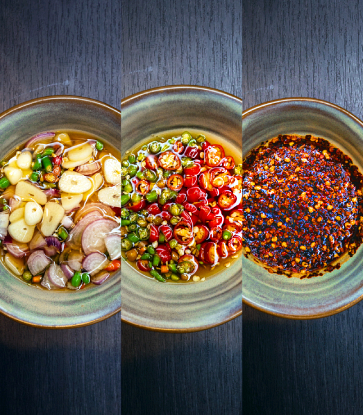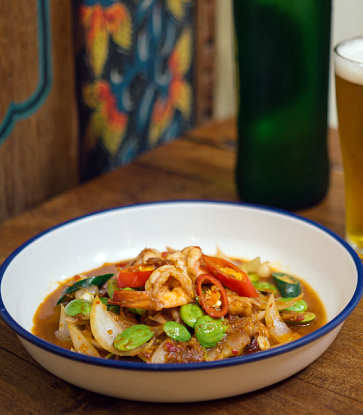The success of a MICHELIN-Starred restaurant depends not only on a single chef’s talent and expertise. It is undeniable that the ingredients used are just as essential in defining every dish that delights diners with every bite.
A delicious case in point is Green Garden, a farm in the mountains and cooler climes of Mae Rim District in Chiang Mai Province. Its fresh, local produce and edible flowers can be found at many one MICHELIN-Starred restaurants across Thailand, including IGNIV, Elements, inspired by Ciel Bleu, and PRU, as well as a few recipients of two MICHELIN Stars, such as Sorn and Sühring.
Running a vegetable and tomato farm producing 40 to 50 different crops a month is not an easy feat, admitted Soontorn Ruttanasook and Parichat Phakaya, the dynamic duo behind Green Garden. Ruttanasook can attest to that, even with a Master of Science in Horticulture from Khon Kaen University in Thailand. He worked as a plant breeder for a private company for ten years before leaving his comfort zone to pursue his desires. And the first thing was to discover “how to provide Thai people with delicious tomatoes to eat”.

“I grew up on a farm where my parents grew tomatoes. I studied agriculture and then took a job in the field as a plant breeder. I worked on tomato breeds for around ten years before I burned out and wanted to try something new on my own. So, I started with tomatoes because that’s something I know. Then I wondered why don’t Thais eat as many tomatoes as our neighbouring countries do? Why do we only use tomatoes as a garnish that’s never eaten? For fresh local products, there used to be only plum tomatoes available, but some are sour and green and not tasty and sweet like those abroad. So, we bred plum tomatoes to be fragrant, red, and sweet. We started with the breeding, then went on to formulate the fertiliser and soil because tomatoes are not indigenous to this region. Once we got it right, we moved on to cold-climate vegetables.”
Ruttanasook recalled starting Green Gardens. Located 800-900 metres above sea level in Mae Rim, Chiang Mai, you would think that this altitude created a suitable climate for winter produce. But even with his advanced degree and years of experience as a plant breeder, he still has to rely on trial and error. After running Green Gardens for about seven or eight years now, he is still learning about seeds and plants. Sometimes, after cultivating a seed for a year, he realises it may not make it to harvest.
“Actually, farmers are like doctors in a way. We need to think critically about each plant. Plants are fundamentally the same, but they each have their own distinctive characteristics and care requirements. Consider the oyster leaf, which flourishes only in colder temperatures. But, let’s say it’s imported at about 50 to 60 baht a leaf. If we can figure out how to grow it here, we can help restaurants by not only reducing the price, but also by providing fresher, local produce.”
So, not only would costs go down and revenue go up for restaurants, but diners would have even more tasty food to eat. Furthermore, truly understanding plants, as well as organic farming, can help farmers control their costs while producing sustainable crops, especially when it comes to fertiliser.
At Green Garden, formulating soil that is most beneficial for each plant is essential. So they begin with a closed greenhouse system that uses a drip irrigation system and no pesticides, as well as coconut coir, all according to GAP (Good Agricultural Practices) and safe for consumers. From there, they adjust the microbial systems in the fertiliser and soil through constant study and experimentation.
Ruttanasook also emphasised how Green Garden would not have been able to thrive the way it does if not for Thailand’s ever-blossoming restaurant industry. And MICHELIN Guide played a role by promoting the growth of fine dining in Thailand, and these restaurants focus on every detail, using the highest quality ingredients. But more than that, many seek and fully support quality ingredients from local farms and producers.

Besides having to understand plants, Green Garden also must do their homework and understand their markets. This is the realm of Phakaya, as she not only has a Master of Science in Agribusiness from Khon Kaen University in Thailand, she also has a Master of Accounting from Central Queensland University in Australia. When considering sales to restaurants and supermarkets, she also has to consider whether the farm, which is basically a two-person operation, can properly supply them. This is because they need to have standard produce available all year round as well as special seasonal offerings while keeping up with demand. Meanwhile, they also need to always be looking for new products and opportunities to cultivate.
“We constantly have to update our crops. Usually, we look at what foreign chefs are doing abroad because those trends often make their way to Thailand. Like edible flowers. When we first opened a restaurant in Thailand, we didn’t know anything about them. Now we have to try them along with different vegetables. Or tomatoes. Imported red tomatoes are flooding in. So, we’re taking a ‘five a day’ approach by marketing red, yellow, green, pink, and striped tomatoes as a fun way to remind people they need to eat five portions of vegetables a day. We also owe thanks to many restaurants that could have easily ordered imported vegetables, but instead, they choose to support local farms like ours.”

Ruttanasook believes that modern farmers cannot just focus on growing vegetables. They also must study the market and current trends at the same time. And then there’s the essential task of tasting the various dishes that use products from Green Garden. Both of them agreed, both joking yet serious, “If we’re farmers but never eat the products we grow, how can we expect others to eat them?”
This is the Green Garden farming philosophy that stresses the importance of supporting local agriculture, boosting local ingredients being proudly featured in dishes at MICHELIN-recognised restaurants.
Green Gardens is not a farm generally open to visitors, but Chiang Mai is a growing destination offering organic farm stays. These are ideal for visitors who want to relax and commune with nature while learning about traditional Thai lifestyles that promote sustainability, such as at an organic farm.
Those interested in Green Garden products or their modern farming methods can follow or contact them on Facebook. And in addition to Green Garden, there are many other interesting farms in Chiang Mai worth a visit, including Tea & Lemon Organic Farm, Doi Inthanon Tea Partnership, I Love Flower Farm, and Organic Farm Chiang Mai.
During your travels, don’t forget to wear a mask, wash your hands, and protect your health. Also, be on the lookout for the SHA logo. SHA is a project involving the Tourism Authority of Thailand (TAT), Ministry of Tourism and Sports, Ministry of Public Health, and others. SHA certification verifies the safety, hygiene, and the sanitation quality of the products and services of Thai businesses in order to ensure a safe travel experience for all travellers.
For more information about this project, please visit web.thailandsha.com. Or get more information for your trip with the TAT Call Centre on 1672 or on Facebook at the TAT Contact Centre.







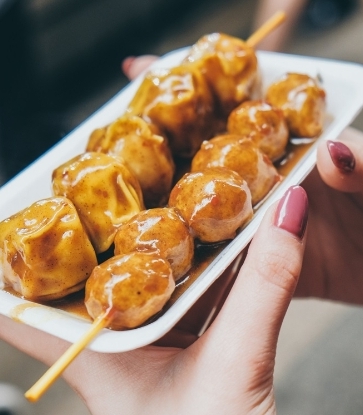
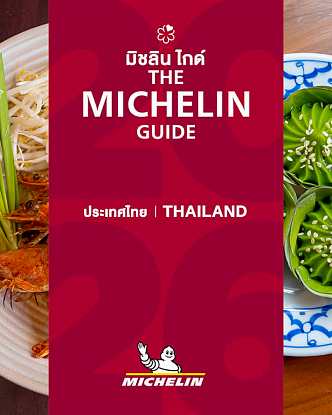
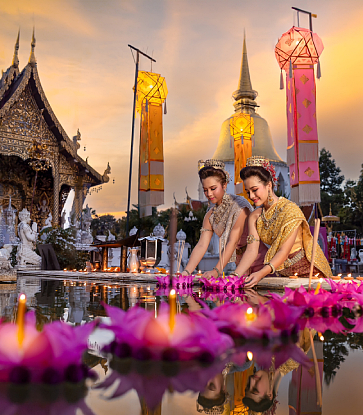
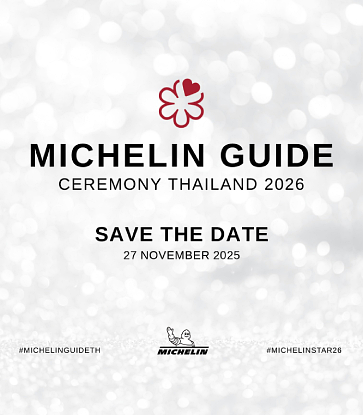
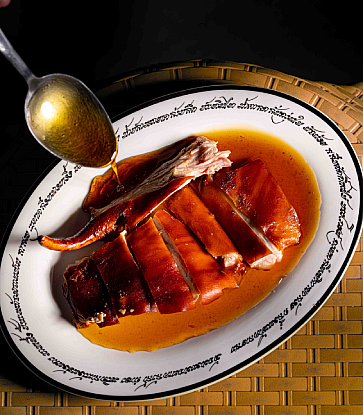
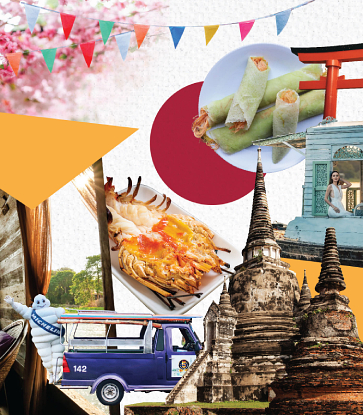
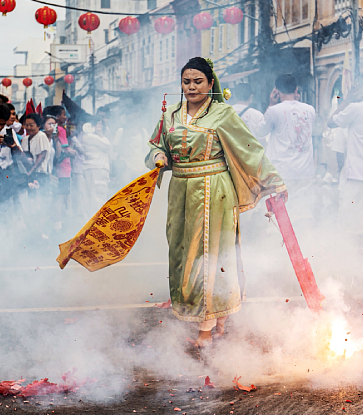
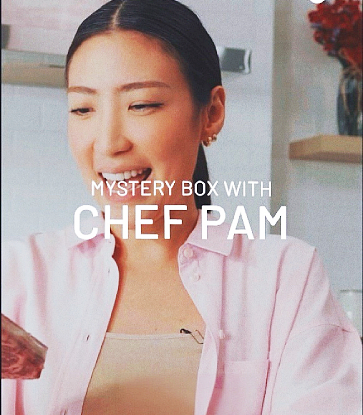
%20-%20Aman%20Nai%20Lert.jpg)
.jpg)
